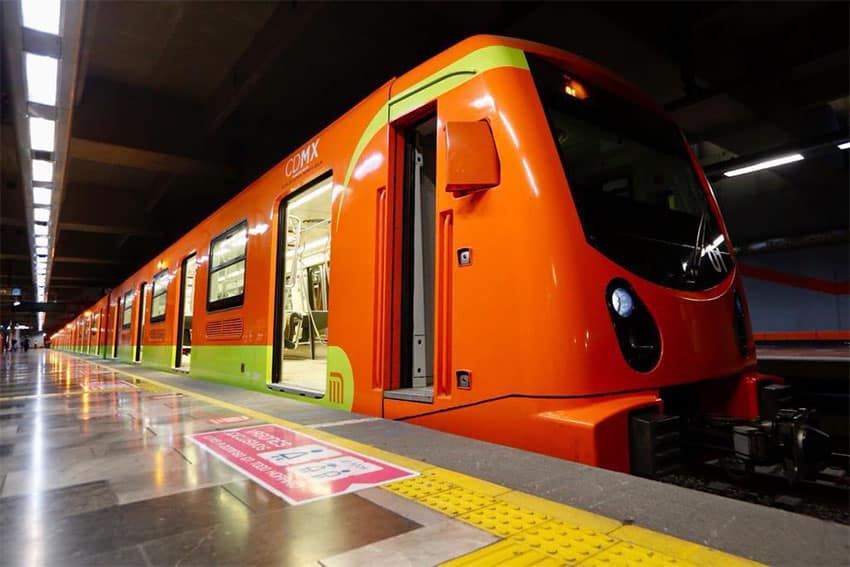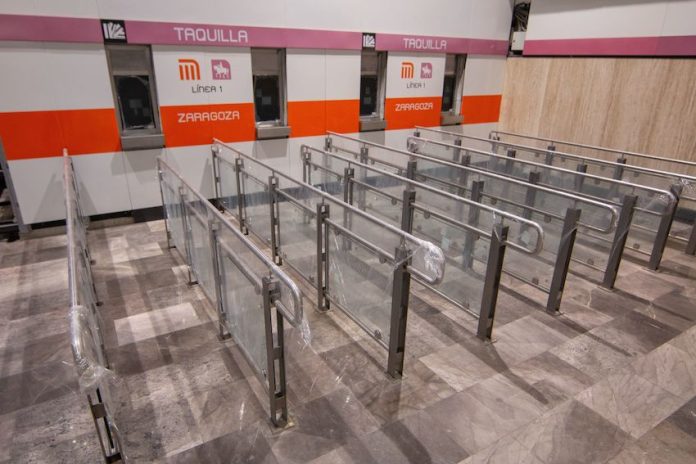Next year, the Mexico City subway’s paper tickets will be a thing of the past: riders will have to use a rechargeable card, according to Metro head Guillermo Calderón.
The new cards, known as Integrated Mobility (MI) cards, are already in use and required for Line 12. Line 1 — currently under renovation — will be the first to follow Line 12 with the requirement, Calderón said Monday during a press conference with Mexico City Mayor Claudia Sheinbaum.

While Calderón did not give an exact date for when the transition would begin, he said that the switchover next year would be a gradual process.
“Line 1 will fully move on to the prepaid system of the Integrated Mobility Card, and by next year, the entire Metro System will only be using the electronic payment system,” he said.
Mexico City Mayor Claudia Sheinbaum tweeted on her account that Mexico City has bought 1,548 turnstiles to support the changeover, and is making other investments in new lamps and a deep cleaning of all the city’s Metro stations.
Launched in 2020, the MI card is a payment method to access the city’s Metro, Metrobús, Light Train, Cablebús, Trolebús and Ecobici transportation networks. In addition to the Metro ticketing office, users can top up their cards using the MercadoPago app, the largest online payment platform in the country.
In a statement published early March, Mexico City’s government reported more than 4.3 million recharges to the MI card through MercadoPago. This is equivalent to some 192.6 million pesos (US $10.6 million) and 28.5 million trips on the city’s transportation network.
Mexico City’s Metro boasts that the cost of its ticket is one of the cheapest in the world: since 2013, a Metro ticket has cost just 5 pesos (worth a bit more than a U.S. quarter), according to the city government.
The MI card itself has a one-time price of 15 pesos (US $0.83) and can only be topped up to 120 pesos (US $5.45). The card’s balance is valid for 300 days.
The capital’s Metro system — the country’s most-used public transportation network — ferried more than 241 million people in 2022’s first quarter, according to the Metro’s own data. According to the newspaper Expansión, 2.5 million people have stopped using the Metro since the pandemic began.
With reports from El Financiero, Expansión and Excelsior.
